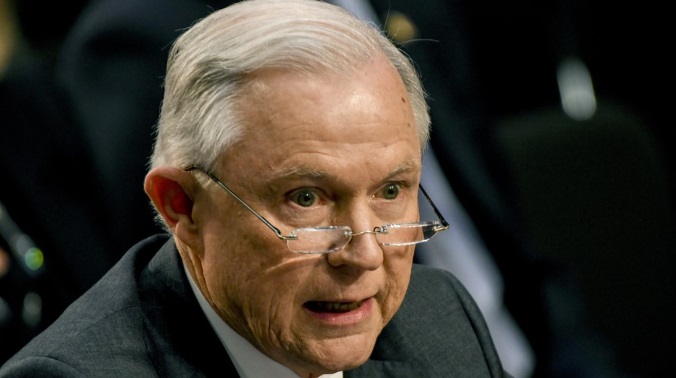Attorney General Jeff Sessions is at it again — continuing his vehement opposition to medical marijuana. Over the years, Sessions’ positions have gone so far as to advocate the death penalty for pot dealers — a stance that is almost as laughable as it is sad considering the numerous scientific studies that have recently proven the medical benefits and efficacy of marijuana-derived medications.
More recently, he’s shown his ignorance on the subject by claiming that “medical marijuana is a joke” and that marijuana was “only slightly less harmful than heroin.”
Sessions’ Task Force Doesn’t Deliver What He Wanted
In a thinly-veiled bid to crack down on the legal marijuana industry, Sessions assembled a task force earlier this year to study the status of the legal marijuana industry and provide him with recommendations. However, the report offered by the task force lacked any ammo to come after the industry and actually recommended that he keep the status quo.
The formation of the task force itself may have been a violation of federal law under the Rohrabacher-Farr amendment, which prohibits the Justice Department from funding investigations of the medical marijuana industry. The previous iteration of the amendment specifically included Colorado, Washington, and Oregon — the three states to whose governors Sessions sent letters outlining his opinion that there are serious issues with the way the states are managing their marijuana programs.
What’s more, these letters are dated July 24, 2017, which is after President Trump signed a new version of the Rohrabacher-Farr amendment (on May 5, 2017) that extended the amendment to all 50 states, Guam, and Puerto Rico. The previous version contained a final sentence that provided a possible loophole for Sessions, stating that “the Rohrabacher-Farr Amendment only applies to medical cannabis, not recreational products or businesses.”
But the current version removes that statement and replaces it with a clear statement that none of the funds may be used “to prevent any of them [the states] from implementing their own laws that authorize the use, distribution, possession, or cultivation of medical marijuana.” The president’s signing of this extended version indicates his support of the medical marijuana community, a consideration that Sessions doesn’t seem to care about.
Sessions Asks Questions but May Not Like the Answers
In Sessions’ letter to Colorado Governor John Hickenlooper, Sessions cited data from the 2016 Rocky Mountain High Intensity Drug Trafficking Report (HIDTA). HIDTA attempts to show collected data on the impact of marijuana legalization, including such statistics as “highway patrol seizures, youth use, traffic deaths and emergency department visits” since Colorado legalized adult-use sales of cannabis in general in 2014. Washington Governor Jay Inslee and Oregon Governor Kate Brown received similar letters.
Sessions cited statistics for the individual states that highlighted his own concerns about marijuana and asked the governors to advise on how they are going to address these “serious findings.”
In response, Washington’s Attorney General Bob Ferguson released a statement on August 4, 2017:
“I was disappointed by Attorney General Sessions’ letter, which relies on incomplete, inaccurate and out-of-date information on the status of Washington’s marijuana regulations. … Any action from the Department of Justice short of allowing our well-regulated, voter-approved system to continue is unacceptable. I will continue to defend the will of Washington voters.”
Colorado has also responded to the letter. Hickenlooper’s office and about 20 representatives from various Colorado agencies met with the Justice Department on July 18, 2017, offering an extensive 140-page presentation on exactly how they’ve addressed public health, safety, and law enforcement concerns. The data presented not only showed that Colorado has issues under control but also mirrored the statement by AG Ferguson in Washington that the data cited by Sessions was outdated and flawed.
The Task Force Says Keep Status Quo, but Will Sessions Listen?
The task force had no new recommendations for Sessions. The group of officials, which includes prosecutors and law enforcement officials, encouraged Sessions to maintain a laid-back policy and further study if changes should be made. Some even claimed that changes at this point would result in failure and embarrass the current administration.
Despite the recommendation, Sessions is expected to target the marijuana industry anyway. His position stands in stark contrast to the will of the citizens, veterans’ groups, and a growing body of politicians who recognize the importance of legalizing the use of medical marijuana.
America seems to understand that medical cannabis legalization is working. Whether Sessions will wise up is yet to be seen.

